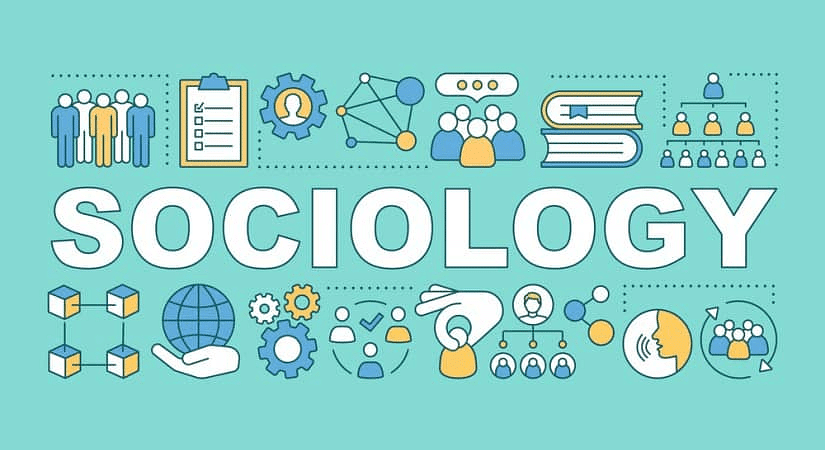(Part - 1) - Terms, Concepts & their Use in Sociology Class 11 Sociology
| Table of contents |

|
| Significance of Terms and Concepts in Sociology |

|
| Social Groups and Society |

|
| Quasi Groups |

|
| Difference between Social Group Vs. Quasi Group |

|
| Types of Groups |

|
Significance of Terms and Concepts in Sociology
We need specific terms and concepts to understand our divergent views about how and why society exists.

- The terms and concepts reflect the concern of social thinkers to understand and map the social changes.
- It reflects the concern that sociologists had in understanding the structured inequalities between groups and society.
- Some approaches start with the individual to understand behavior, focusing on micro interactions, while others examine macro structures like class, caste, market, state, or community. Status and role focus on the individual, whereas social control and stratification look at the broader context in which individuals exist.
- Terms and concepts act as tools of different ways to understand society.
- Sociology as a discipline allows the coexistence of concepts that leads to divergence of views. For example, conflict theory versus functionalist theory. This multiplicity of approaches is particularly acute in sociology. Or, how different thinkers explain society and its functioning.
Social Groups and Society
Social group refers to a collection of continuously interacting persons who share common interest; cultures, values, and norms within a given society.
Characteristics of Social Group
- Persistent interaction to provide continuity
- A sense of belonging
- Shared interest
- Acceptance of common norms and values
- A definable structure.

Quasi Groups
A quasi group can be defined as an aggregate or combination, which lacks structure or organisation, and whose members may be unaware, or less aware, of the existence of groupings.
- Examples: Passengers waiting at a railway station or airport or bus stop or a cinema audience. Such aggregates are often termed as quasi groups.
- For example, social classes, status groups, age groups, gender groups can be quasi groups.
- In due course of time and in specific circumstances such aggregates might take the form of a social group as sociologically defined.
- For example, people belonging to the same caste might come together to form a caste based political party.
- Such political parties will be referred to as social groups as members will be conscious of their interaction and belonging.
Difference between Social Group Vs. Quasi Group
 Difference between Social Group Vs. Quasi Group
Difference between Social Group Vs. Quasi Group
Types of Groups
Different sociologists have classified social groups differently. In their classifications, they take different criteria into account.
Primary and Secondary Group
- Primary Group and Secondary Group on basis of size/type of relationship
- It is the most well-known classification given by Cooley on the basis of size and type of relationship shared among its members.
- Primary group refers to small group of people connected by intimate and face-to-face association and co-operation, for e.g. family, village, and groups.
- Secondary group is the group in which there is a lack of intimacy, e.g., different political groups, economic associations etc.
 Difference between Primary and Secondary Group
Difference between Primary and Secondary Group
Characteristic of primary group
(1) Small size of group
(2) Physical proximity
(3) Continuity and stability of the relationship
(4) General responsibility
(5) Common-aim
Characteristic of secondary group
(1) Large size
(2) Indirect relationship
(3) Fulfilment of special interest
(4) Limited responsibility
(5) Impersonal relationship
Community and Society (or Associations)
Community:
- Definition: Community refers to close, personal relationships where people know each other well and care deeply for one another.
- Examples: Family, close friends, and tight-knit groups like local clubs or neighborhood associations.
Society (or Association):
- Definition: Society, or association, refers to more distant and formal relationships, often found in larger, modern settings where interactions are more about business or practical matters.
- Examples: Business contacts, coworkers, and people you meet in cities or large organizations

In Group and Out Group
Ingroups:
- Definition: Groups you feel you belong to and identify with.
- Example: Your group of close friends.
Outgroups:
- Definition: Groups you don't belong to and see as different.
- Example: A rival sports team.
 Difference between 'In Group' and 'Out Group'
Difference between 'In Group' and 'Out Group'
Reference Groups
There always exists a group that acts as a model for the individual or any group.
- This model group is treated as the reference group. For instance a person/individual copies or emulates the life of any film actor or artist.
- Aggregates of people who are in the same place at the same time but share no definite connection with one another are termed as 'quasi groups'.
Peer Groups
- Peer group is a sort of primary group where members come together to pursue a similar activity.
- Peer groups are usually of the same age.
- Classmates in a school, colleagues at office, co-participants in the aerobics classes, are all examples of peer groups.
|
41 videos|94 docs|17 tests
|
FAQs on (Part - 1) - Terms, Concepts & their Use in Sociology Class 11 Sociology
| 1. What is the difference between a social group and a quasi group? |  |
| 2. What are the main types of social groups in sociology? |  |
| 3. Why are social groups important in society? |  |
| 4. Can quasi groups influence behavior in society? |  |
| 5. How do social groups and quasi groups differ in terms of social interaction? |  |

|
Explore Courses for Humanities/Arts exam
|

|


















